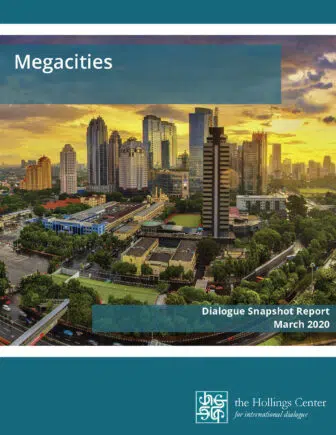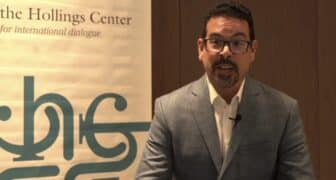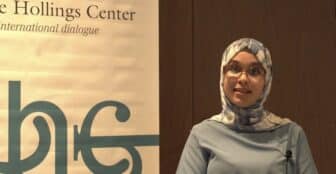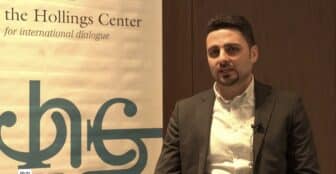Dialogue Information

DIALOGUE SNAPSHOT REPORT
July 2019
Jakarta, Indonesia
Representing different countries, urban cultures, and distinct levels of economic and human development, these megacities nonetheless have several commonalities. All are potential economic powerhouses and can offer wealth, diversity, and innovation to their inhabitants, and investment and expansion opportunities to businesses. They all encounter challenges that accompany fast-paced growth such as overcrowding, resource scarcity and management, and social inequality.
In an effort to discuss the opportunities and challenges within megacities, the Hollings Center for International Dialogue conducted a dialogue conference in Jakarta in July 2019. The dialogue featured researchers, urban planners, municipal officials, journalists, architects, and environmentalists representing Baghdad, Cairo, Dhaka, Istanbul, Jakarta, Lahore, Los Angeles, and New York. Over the course of several days, the participants determined several conclusions and points requiring further analysis:
Dialogue Conclusions
The definition of a megacity is far more amorphous than simple criteria of population, density, or geographic size. Better assessment of the challenges and opportunities created by megacities requires greater theoretical analysis and a broadened, inclusive definition.
Differences exist between megacities of the “Global North” and the “Global South.” Despite this, cities on both spectra can learn from each other when applying those solutions. The scope, priority, and remedy of each challenge varies city to city.
Maintaining a healthy, vibrant megacity depends on the healthy flow of people, ideas, resources. Regular “back-and-forth” can create transparency and opportunity from the city center to the city’s periphery. However, impediments to that flow can create infrastructural decay, cascading corruption, social stress, and economic inequalities.
A thriving megacity requires significant amounts of water, energy, and food. Successfully addressing the challenges posed by the high demand for these nexus resources will foster not only improved social equality, but also create more efficient systems to address environmental challenges.
Megacities require good governance of land use, health, housing, and transportation. Better transparency between governments and citizens is needed and new technological applications could help improve that communication.
Balancing urban development while protecting heritage proved a sensitive subject during the dialogue. Heritage can be used to project a city’s image and identity. However, it is important to balance community needs and interests with cultural, historical, natural preservation.


